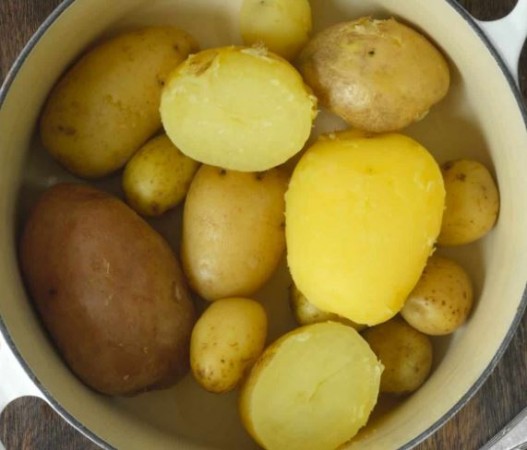
Potatoes, being a culinary favorite, find their way into a myriad of dishes. From snacks to main courses, the versatility of potatoes is unmatched. However, recent insights from health experts have shed light on a specific practice that may pose potential risks to our health – the habit of boiling potatoes and then refrigerating them for later use. In this comprehensive guide, we will delve into the reasons behind health experts' warnings and explore the nuances of storing potatoes in the fridge.
Starch to Sugar Transformation:
Boiling potatoes initiates a process wherein the starch in potatoes undergoes a transformation into sugar. This chemical change occurs more rapidly when potatoes are boiled. Consequently, health experts caution against storing boiled potatoes in the refrigerator, as the cool temperature accelerates this transformation.
The Formation of Acrylamide:
Storing boiled potatoes in the fridge introduces an additional risk – the formation of acrylamide. When sugar in potatoes combines with asparagine during refrigeration, it creates acrylamide. This compound is not only found in potatoes but is also used in the production of paper and plastic. The implications of introducing acrylamide into our diet through refrigerated potatoes are a cause for concern.
Extended Refrigeration and Health Hazards:
Some individuals adopt the practice of boiling potatoes in advance, refrigerating them, and using them the next day. Unfortunately, health experts warn that extended refrigeration of boiled potatoes can potentially lead to health hazards. It is crucial to understand the chemical changes that occur during this process and their impact on our well-being.
The Risk Extends to Raw Potatoes:
The cautionary advice regarding refrigeration extends beyond boiled potatoes to raw ones. Storing raw potatoes in the fridge can also lead to spoilage and the formation of acrylamide. Acknowledging this risk prompts a reevaluation of the common practice of refrigerating potatoes.
Ideal Storage Conditions:
To ensure the freshness and safety of potatoes, experts recommend alternative storage methods. Exposing potatoes to sunlight is one such method. Placing them in a single layer prevents the potatoes at the bottom from spoiling. The ideal temperature for storing potatoes is at least 50°F (10°C). Understanding and implementing proper storage conditions can mitigate the potential risks associated with refrigeration.
Reconsidering Common Practices:
In conclusion, the prevailing habit of storing potatoes in the refrigerator requires reconsideration. Whether boiled or raw, the risks associated with refrigerating potatoes prompt a closer examination of our kitchen practices. Adhering to proper storage methods, such as exposure to sunlight and maintaining an appropriate temperature, allows individuals to enjoy the culinary versatility of potatoes without compromising their health.
This detailed guide provides insights into the reasons behind health experts' caution regarding the storage of boiled potatoes in the fridge. By understanding the starch-to-sugar transformation, the formation of acrylamide, and the risks associated with extended refrigeration, individuals can make informed choices about their kitchen practices. Implementing alternative storage methods ensures that the beloved potato remains a delicious and safe addition to our meals.
Understanding Red Eyes: Causes and Remedies for Conjunctivitis
Know The Healing Power of August Tree: Nature's Remedy for Cold, Cough, and Flu
Yellowness of eyes is also a symptom of pancreatic cancer, identify it in time and prevent it